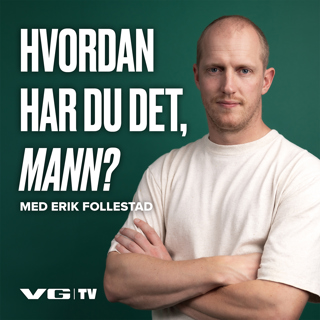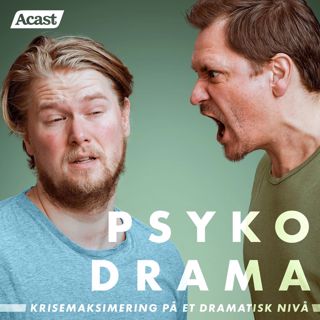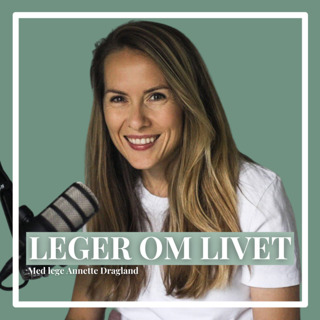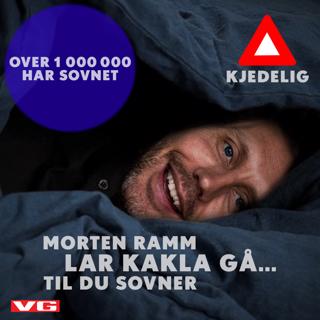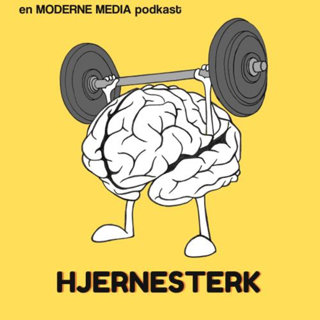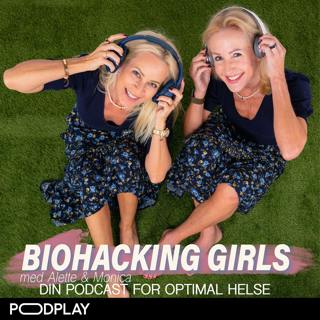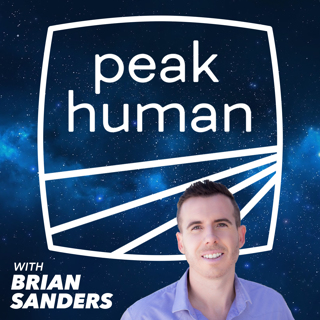
Sapien Podcast - Simplicity, Discipline & Living Fit Past 40 with Chris Kruger
In this episode of Sapien Podcast, Brian Sanders and Chris unpack how to simplify health in a noisy world. They discuss intermittent fasting, the truth about cardio, testosterone, and why building muscle is the foundation for longevity. Chris and Brian share their personal journey, practical tips for busy men, and the philosophy that has helped thousands transform their lives by doing less, but better. Show Notes: 04:00 The Ten Commandments of Health – Simplicity Over Complexity 07:30 Why Discipline Brings Freedom in Health and Life 10:15 Eating Real Food vs. Diet Dogma 13:40 Intermittent Fasting, Energy, and Recovery 17:20 Muscle as the Anchor of Longevity 20:00 Cardio Myths and Why Strength Training Wins 24:00 Testosterone, Aging, and Building Vitality After 40 28:00 Lifestyle Habits That Compound Over Time 32:00 The Role of Faith, Family, and Community in Health 36:00 Why Simplicity Is the Ultimate Sophistication
4 Nov 35min

Part 229 -Reviving Regenerative Agriculture with Will Harris
Will Harris is known for his pioneering regenerative agriculture practices. The episode explores Harris's journey from traditional farming to regenerative agriculture, the economic challenges, and the impact on land, community, and ecosystems. Harris shares insights from his experiences, including his transition away from chemical-dependent farming and the development of vertically integrated operations. They discuss the benefits of regenerative practices, the difficulties in marketing and scaling, as well as the broader implications for nutrition and sustainability. Lastly, the episode addresses the sustainability of feeding the world through regenerative practices, emphasizing local community support and the long-term generational benefits. 05:10 Introduction to Will Harris 09:05 Challenges and Evolution in Farming Practices 29:43 The Impact of Erosion on Soil Health 30:09 Scientific Comparison: Monocrop vs. Diverse Ecosystem 30:48 Economic Challenges of Transitioning to Regenerative Farming 31:49 The Rise of Grass-Fed Beef and Market Challenges 33:00 Educating Consumers on Grass-Fed Beef 35:03 The Influence of Propaganda on Food Choices 42:18 The Role of Debt in Farm Management 44:15 Challenges in Poultry Farming 50:31 The Benefits of Regenerative Agriculture 53:31 Feeding the World Sustainably 01:00:20 Reflections on the Future of Regenerative Farming BEEF TALLOW PRODUCTS: NosetoTail.org Preorder the film here: http://indiegogo.com/projects/food-lies-post Film site: http://FoodLies.org YouTube: https://www.youtube.com/c/FoodLies Follow along: http://twitter.com/FoodLiesOrg http://instagram.com/food.lies http://facebook.com/FoodLiesOrg
29 Okt 1h 2min
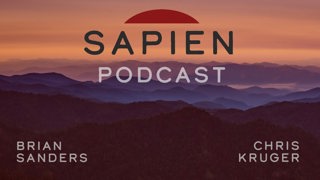
Sapien Podcast- Fiber Myths, Vitamin C Lies, and the Fight for Root-Cause Health with Chris Kruger
In this episode of the Sapien Podcast, Chris Kruger returns as co-host with Brian Sanders for a deep dive into nutrition myths, fiber fallacies, and the failures of mainstream dietetics. Together, they expose how official guidelines and academic institutions push confusion for profit while ignoring root-cause solutions. The hosts critique health narratives around fiber, red meat, vitamin C, and weight-loss drugs, while sharing client case studies that reveal the real path to metabolic health. They emphasize the Sapien approach: whole foods, animal-based nutrition, hormone balance, and lifestyle over pills and procedures. SHOW NOTES: 04:00 The Football Analogy: nutritionists misunderstand cause and effect 06:00 Debunking fiber myths and why whole foods matter most 09:00 Case study: reversing lifelong constipation with a low-fiber diet 12:00 Red meat, healthy user bias, and flawed nutrition studies 14:30 Academia, food industry funding, and distorted guidelines 15:30 Carnivore diets and the vitamin C myth 18:00 Beyond "calories in, calories out" 27:00 Defining metabolic syndrome vs. metabolic excellence 30:00 Statins, side effects, and why lifestyle beats prescriptions 32:00 Hormone health as the foundation of motivation and vitality BEEF TALLOW PRODUCTS: NosetoTail.org Preorder the film here: http://indiegogo.com/projects/food-lies-post Film site: http://FoodLies.org YouTube: https://www.youtube.com/c/FoodLies Follow along: http://twitter.com/FoodLiesOrg http://instagram.com/food.lies http://facebook.com/FoodLiesOrg
27 Okt 37min

Sapien Podcast- Fitness Wisdom Unplugged
In this episode of the Sapien Podcast, Chris Krueger joins the show as a new co-host along with host Brian Sanders. They introduce the podcast as a fun, unplanned discussion about health, fitness, and hormone optimization. The hosts share personal fitness stories and emphasize the importance of a holistic approach to health, advocating for living naturally and avoiding artificial supplementation like TRT. They critique Brian Johnson's extreme health regimens and promote practical, actionable steps for achieving and maintaining elite health without extensive gym workouts or complex diet plans. SHOW NOTES: 00:00 Introduction to the Sapien Podcast 01:11 Fitness and Hormone Optimization 01:25 Generational Fitness and Relatability 01:43 Chris's Fitness Feats and Midlife Reflections 04:57 The Importance of Staying Active 05:38 Family Dynamics and Health Advice 08:01 The Sapien Lifestyle and Hormone Balance 14:16 Insulin and Metabolic Health 17:31 Raw Milk and Sapien Center Community 18:42 Farmer's Market Raw Milk Prices 20:43 Brian Johnson's Cult-Like Brunch 22:03 The Profit in Food Processing 25:31 Debunking Diet Myths BEEF TALLOW PRODUCTS: NosetoTail.org Preorder the film here: http://indiegogo.com/projects/food-lies-post Film site: http://FoodLies.org YouTube: https://www.youtube.com/c/FoodLies Follow along: http://twitter.com/FoodLiesOrg http://instagram.com/food.lies http://facebook.com/FoodLiesOrg
22 Okt 35min

Part 228 - Dr. Doug McGuff on High-Intensity Training, Recovery, and the Truth About Nutrition
Dr. Doug McGuff is an emergency physician, exercise researcher, and co-author of Body by Science. Known for his pioneering work in high-intensity resistance training, McGuff blends decades of medical practice with deep knowledge of physiology to reveal how short, focused workouts can yield extraordinary health benefits. He also runs training studios in South Carolina that specialize in safe, supervised strength training. In this episode of Peak Human, Brian Sanders and Dr. McGuff dive into why most people misunderstand exercise, the dangers of overtraining, and how nutrition and movement fit together for long-term health. They cover everything from the "12-minute workout" to the role of myokines, why VO₂ max is misunderstood, and how subsidies and processed foods hijacked the human diet. This conversation reframes what it truly means to build strength, resilience, and health for life. Show Notes: 03:00 Dr. McGuff's Background: Emergency Medicine & Strength Training 07:00 Adaptive Resistance Training (ARX) & How It Works 14:00 The Physiology of Strength: Motor Units & True Failure 22:00 The "12-Minute Workout" – Time Efficiency & Maximum Results 25:00 Overtraining, PEDs, and the Myths of Modern Fitness Culture 28:00 Long-Term Damage from Inefficient Training Methods 30:00 You Can't Out-Exercise a Bad Diet 33:00 The Straight Line Between You and the Sun – Whole Food Nutrition 44:00 Debunking the Meat & Gout Myth 48:00 Eat Densely, Move Intensely – Rethinking Fitness Advice 49:00 Cardio Myths, VO₂ Max, and the Zone 2 Obsession 56:00 What Really Correlates With Longevity: Adaptation, Not Numbers BEEF TALLOW PRODUCTS: NosetoTail.org Preorder the film here: http://indiegogo.com/projects/food-lies-post Film site: http://FoodLies.org YouTube: https://www.youtube.com/c/FoodLies Follow along: http://twitter.com/FoodLiesOrg http://instagram.com/food.lies http://facebook.com/FoodLiesOrg
24 Sep 1h 14min

Part 227 - Holistic Health, Slow Food, and Lifelong Vitality with Tara Couture
In this episode of Peak Human, host Brian Sanders welcomes back Tara Couture. Tara, a renowned advocate for the Sapien lifestyle, shares insights into her holistic approach to health, which includes growing her own food and embracing a nutrient-dense diet. The discussion covers various topics, including nutrition, lifestyle factors, nature, hormone optimization for both men and women, and practical tips for adopting this lifestyle even in urban settings. Tara also discusses her new book, 'Radiance of the Ordinary,' which explores the profound rewards of living authentically and nourishing one's body. Brian also highlights the benefits of natural supplements like oyster pills for hormone optimization. A must-listen for anyone interested in sustainable living and holistic health. Show Notes: 00:15 Tara's Lifestyle and Farmstead 00:59 Nutrition and Lifestyle 07:46 Raising Healthy Children 15:36 Cooking and Food Preparation 31:45 Travel and Eating Healthy 35:10 Carbs and Diet Adjustments 36:42 Exploring the Benefits of Carbs 38:00 Introducing Tara's Book: Radiance of the Ordinary 38:46 The Dichotomies of Life and Embracing Mortality 43:33 The Importance of Real Food and Nutrition 48:13 Men's Health and Hormones 57:41 The Simplicity of Whole Foods 01:05:54 The Gift of a Healthy Body BEEF TALLOW PRODUCTS: NosetoTail.org Preorder the film here: http://indiegogo.com/projects/food-lies-post Film site: http://FoodLies.org YouTube: https://www.youtube.com/c/FoodLies Tara's Book: https://www.penguinrandomhouse.com/books/798098/radiance-of-the-ordinary-by-tara-couture/ Follow along: http://twitter.com/FoodLiesOrg http://instagram.com/food.lies http://facebook.com/FoodLiesOrg
3 Sep 1h 12min

Part 226 - Biohacking and Homesteading: Bridging the Gap with Michael Kummer
In this episode, Brian Sanders chats with Michael Kummer about his multifaceted approach to health and wellness, which combines elements of biohacking, fitness, and homesteading. Kummer, a proponent of the 'Sapien' philosophy, emphasizes a diet and lifestyle that closely mimic natural human behaviors. The discussion covers Michael's fitness routine, which involves minimal gym time, his creation of an accessible fitness program, and his unique perspective on the synergy between biohacking and homesteading. They delve into the issue of modern diets, stress, and lifestyle factors impacting health, using Austria as a case study to highlight these trends. Kummer also shares insights into his family's transition to a homesteading lifestyle and offers practical tips for integrating these principles into various lifestyles. Try the oyster pills! https://nosetotail.org/products/pure-oyster Show Notes: 02:18 Biohacking vs. Natural Living 04:12 Homesteading and Food Production 08:45 Health Impacts of Modern Lifestyle 12:03 Traditional Food Preparation Techniques 24:41 The Importance of Muscle Mass 28:12 Austrian Lifestyle and Longevity 33:02 Traditional Austrian Diet: Then and Now 33:16 Impact of World War II on Diet and Lifestyle 35:32 Modern Austrian Diet and Health Trends 37:46 Comparing Health Outcomes: Austria vs. USA 45:38 Personal Fat Threshold and Its Implications 51:52 Homesteading and Sustainable Living 54:21 Balancing Modern Life with Traditional Practices 58:21 The Role of Community in Homesteading 01:03:13 Supplements and Whole Foods for Optimal Health BEEF TALLOW PRODUCTS: NosetoTail.org Preorder the film here: http://indiegogo.com/projects/food-lies-post Film site: http://FoodLies.org YouTube: https://www.youtube.com/c/FoodLies Follow along: http://twitter.com/FoodLiesOrg http://instagram.com/food.lies http://facebook.com/FoodLiesOrg
13 Aug 1h 6min

Part 225 - Unlocking the Secrets of Satiety Per Calorie with Dr. Ted Naiman
In this episode of Peak Human, host Brian Sanders interviews Dr. Ted Naiman, discussing the concept of satiety per calorie and its implications for diet and health. They dive into the importance of understanding different diet patterns, focusing on high-protein, nutrient-dense foods, and avoiding overly processed foods. The conversation covers the four pillars of satiety per calorie: protein percentage, energy density, fiber content, and hedonics. Dr. Naman also talks about his new book 'Satiety Per Calorie,' which aims to provide a comprehensive understanding of diet and nutrition, helping people make informed food choices to maintain optimal body composition effortlessly. The episode concludes with discussions on the benefits of natural exercise routines and natural supplements for overall health. Try the oyster pills! https://nosetotail.org/products/pure-oyster Show notes 00:28 Understanding Diets and Nutrition 01:28 Exercise and Fitness Insights 02:09 Oyster Pills and Testosterone Boost 03:15 Daily Life and Health Philosophy 03:53 Satiety and Nutrient Density 05:38 The PE Diet and Satiety Per Calorie 06:34 Explaining Diet Patterns and Health Outcomes 12:48 Practical Tips for Diet and Exercise 41:09 Understanding Protein Leverage and Obesity 44:07 Can You Get Fat on Protein? 45:47 Nutrient Calories vs. Energy Calories 49:33 The Four Pillars of Satiety Per Calorie 54:42 The Role of Fiber in Satiety 01:01:38 Energy Density and Caloric Intake 01:07:01 The Liver's Role in Metabolism REGENERATIVE PRODUCTS: NosetoTail.org Preorder the film here: http://indiegogo.com/projects/food-lies-post Film site: http://FoodLies.org YouTube: https://www.youtube.com/c/FoodLies Follow along: http://twitter.com/FoodLiesOrg http://instagram.com/food.lies http://facebook.com/FoodLiesOrg
6 Aug 1h 14min





